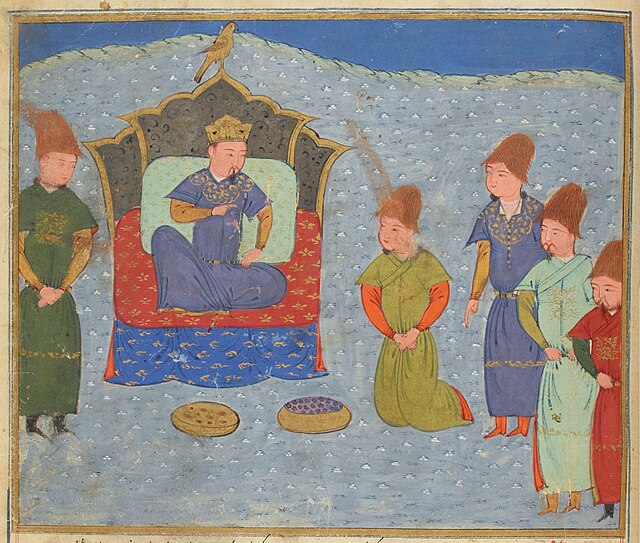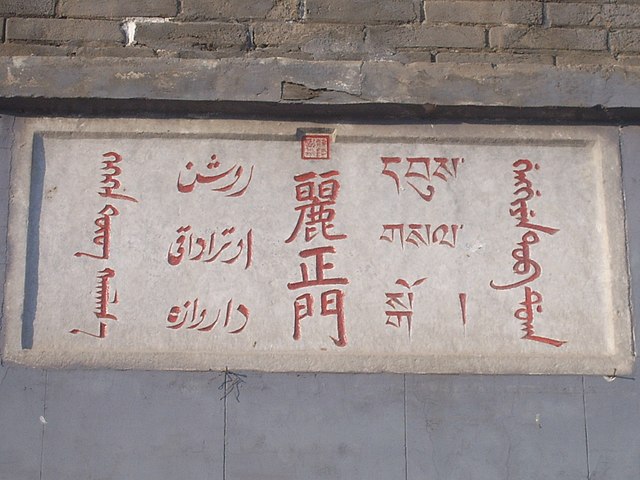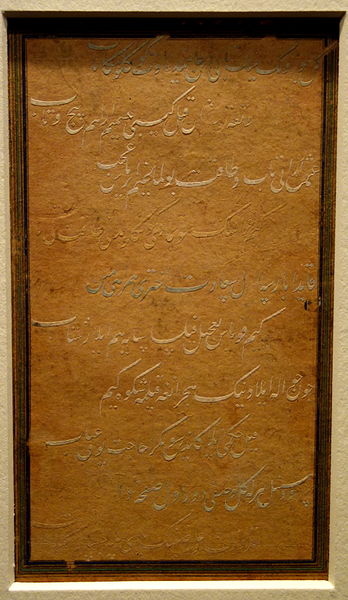The Golden Horde, self-designated as Ulug Ulus, was originally a Mongol and later Turkicized khanate established in the 13th century and originating as the northwestern sector of the Mongol Empire. With the division of the Mongol Empire after 1259, it became a functionally separate khanate. It is also known as the Kipchak Khanate or as the Ulus of Jochi, and it replaced the earlier, less organized Cuman–Kipchak confederation.
Batu Khan establishes the Golden Horde.
Jochi Mausoleum, Karagandy Region
Coinage of Berke, Qrim (Crimea) mint. Struck c. AH 662–665 (AD 1263–1267).
The Golden Horde army defeats the Ilkhanate at the battle of Terek in 1262. Many of Hulagu's men drowned in the Terek River while withdrawing.
Chagatai, also known as Turki, Eastern Turkic, or Chagatai Turkic, is an extinct Turkic language that was once widely spoken across Central Asia. It remained the shared literary language in the region until the early 20th century. It was used across a wide geographic area including western or Russian Turkestan, eastern or Chinese Turkestan, the Crimea, the Volga region, etc. Literary Chagatai is the predecessor of the modern Karluk branch of Turkic languages, which includes Uzbek and Uyghur. Turkmen, which is not within the Karluk branch but in the Oghuz branch of Turkic languages, was nonetheless heavily influenced by Chagatai for centuries.
Lizheng Gate at the Chengde Mountain Resort. The second column from the left is the Chagatai language written in Perso-Arabic Nastaʿlīq script which reads Rawshan Otturādiqi Darwāza.
Late 15th century Chagatai Turkic text in Nastaliq script.






